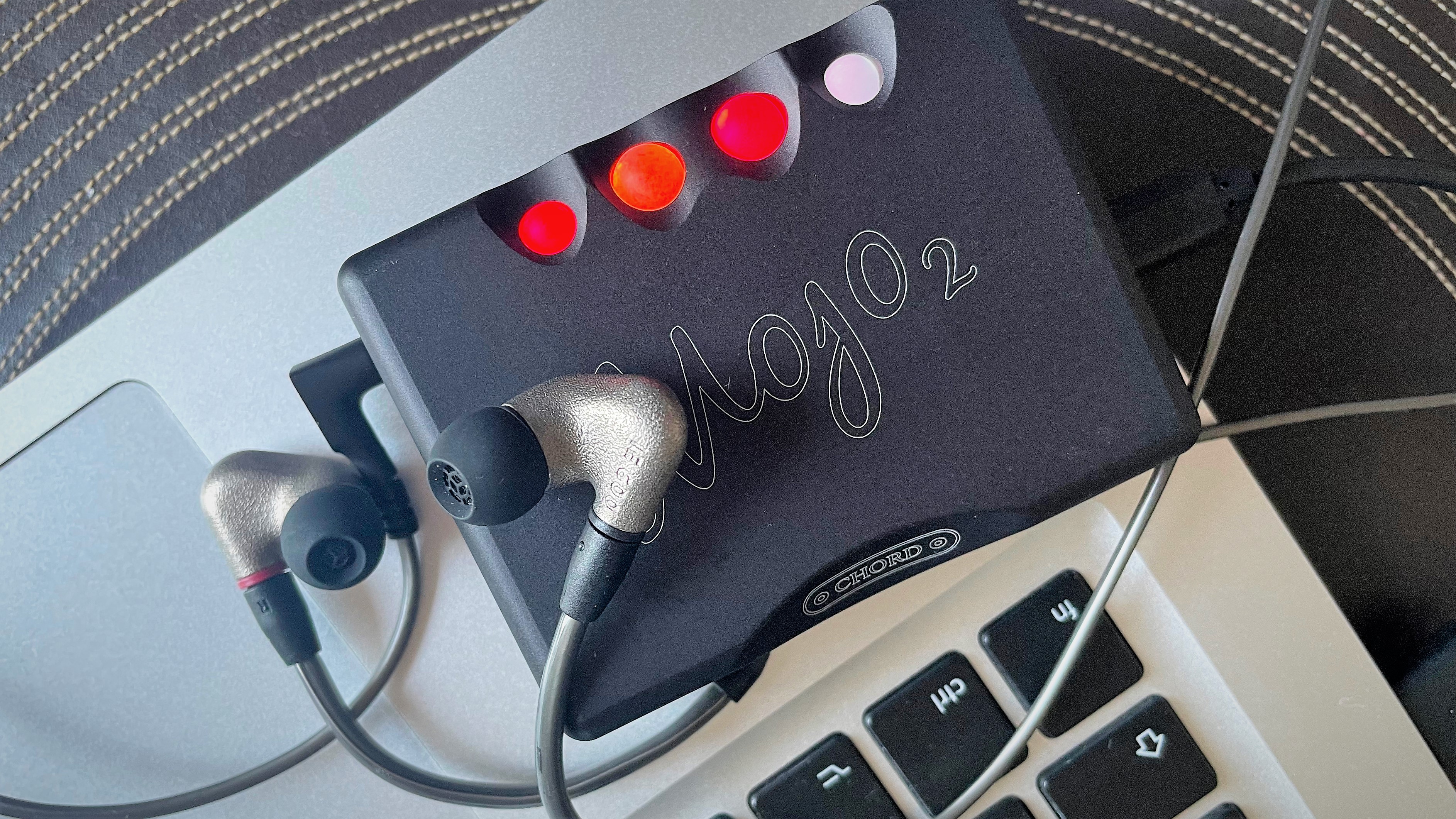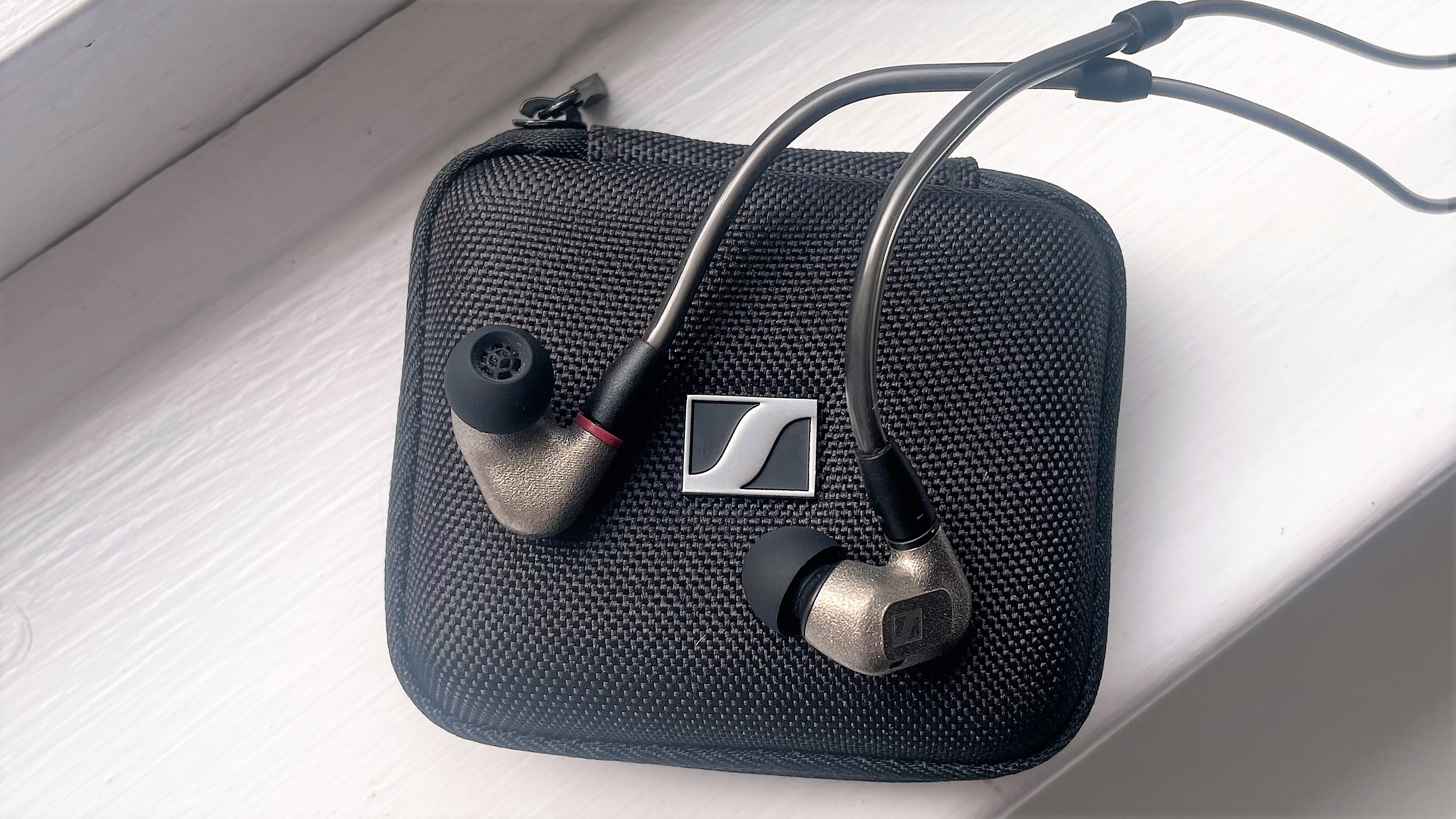I'd still choose wired headphones over wireless — here's why
Thinking of going cord-free? Here are a few reasons to reconsider

Wired headphones have always beaten wireless where sound quality is concerned, but listening on the move has always valued convenience more than performance.
These days with most of us getting our music fix while on the move, portability has undoubtedly become a key consideration when choosing the best wireless headphones, but there are plenty of reasons to consider a wired design.
That said, if you're thinking of going cord-free, here are a few reasons to reconsider.
Why have wireless headphones exploded in popularity?
First of all, it is important to understand that Apple's removal of the headphone socket from the iPhone 7 in 2016 came as a big surprise for portable music fans and headphone manufacturers alike. As almost all smart phone rivals began to follow suit, what seemed like a crazy move by music fans actually revolutionized the way we connect to music playback devices, as we were forced to ditch our wired headphones for wireless ones.
On the face of it, this felt like progress. Smartphones got sexier with the jack socket finally gone, and accessory makers everywhere bolstered their headphone lineups with wireless Bluetooth connectivity.
The freeing up of listeners from the daily untangling of wires remains a hugely attractive benefit and a massive convenience consideration for many. But, for me at least, it's pretty much the only benefit I agree with.
Reason #1 to stay wired: Wired headphones last longer
Wired headphones are more durable than wireless simply because they use fewer components. Wired headphones are passive transducers driven by a headphone amp inside whatever playback device they're plugged into. They don’t need (bad for the environment) rechargeable batteries so there's never any need to remember to keep them topped up, no audio processing chips, or any kind of signal-boosting amplification. They simply carry audio signals from the playback device along a wire connected to the speaker driver inside the headphone earcup that generates the soundwaves heard by our ears.
Get instant access to breaking news, the hottest reviews, great deals and helpful tips.
Although wireless technology has gotten smaller and many second generation designs — including the Bose QuietComfort Earbuds 2 and Samsung Galaxy Buds 2 Pro — claim a significant reduction in size over previous versions, some can be bulky and heavier than their wired counterparts due to all the tech that is squeezed inside. This has a direct impact on weight and affects comfort levels for wireless models.
The lack of any built-in audio tech or need for battery power are exactly what makes wired headphones lighter and more comfortable to wear for longer listening. This also has an economic impact, and can lead to higher-quality audio components being used in wired designs compared to wireless price rivals.
Reason #2 to stay wired: Wired headphones don't suffer from connection issues
Unlike physical connections, wireless connections can still be flaky. Bluetooth has managed to make wireless connectivity as seamless as possible, but I’ve lost count of the number of times I've experienced no sound from a pair of wireless earbuds despite my playback device saying the headphones are connected and playing audio.
In fact, I regularly report on wireless connectivity and control app issues, and not even brand new models like the Bose QuietComfort Earbuds 2 equipped with the latest Bluetooth version are immune from glitchy pairing connectivity — although it is important to point out that once a wireless connection is established, it usually remains perfectly stable and secure for as long as you're listening.
Also, wireless headphone connections can be prone to distracting audio latency issues when watching video or gaming. Although, again, I should point out that recent Bluetooth versions have worked to reduce the audio lag for a better synchronized audio/visual experience, which is something at least.

Reason #3 to stay wired: Wired headphones simply sound better
I listen to plenty of wireless earbuds, and carry several options on my daily commute. The reason I choose wired over wireless headphones, though, is entirely to do with sound quality.
While plenty of wireless headphones like the Sony WH-1000XM5, and Bowers & Wilkins Px7 S2 over-ear headphones, which both offer sensational sound quality and rank highly in our best audiophile headphones buying guide, I believe I get a more musical performance via a wired connection.
Wireless headphone can often be fatiguing to wear for longer listening periods — a couple of hours is often the max before fatigue sets in. This can be caused by frequency imbalances — often a result of audio compromises made to boost certain frequencies for a particular sound signature or to mask cheaper designs — that can be tiring for the ears to endure and the brain to process. Also, blurry or confused audio imaging can mean to the illusion of less 'space' around performers and instruments in the soundstage, making the individual elements that make up the music mix less easy to follow.
These wireless characteristics are often a side effect of the audio codec that's reducing audio files to a manageable size so that they can be transmitted over Bluetooth efficiently.
As I've discussed before, Bluetooth doesn’t currently have the bandwidth to support lossless music files, although this could all be about to change as support for Qualcomm's aptX Lossless audio codec gets rolled out.
With wired headphones there are no audio bandwidth compromises, although it will of course also depend on the playback source and the quality of music file that is playing as to whether you're hearing your music in full resolution. Chances are though, that if you’re listening to a pair of wired headphones, you already own a quality playback source and have access to library of content available in the highest quality.
Many may disagree that listeners can hear the compromises made by audio codecs over wireless, but I challenge anyone to listen to their favorite tracks via a pair of the Sennheiser IE 600 in-ear wired headphones and not experience a more musical connection compared to a wireless rival. Layers and textures within music recordings are more easily heard, and performances sound more lifelike with a soundstage that can feel almost three-dimensional.

Reason #4 to stay wired: Wired headphones are easy to upgrade
If this was't enough already, the sound quality of wired headphones can be further upgraded by introducing a dedicated headphone amp/DAC (digital-to-analog convertor) inline between the playback source and the headphones, rather than using the internal DAC and headphone jack from a laptop or smart phone.
The Chord Electronics Mojo 2 is a high-quality DAC and headphone amp aimed at audiophiles. I've reviewed the original Mojo in a previous role and although undeniably expensive, I can vouch that it is an excellent choice and its compact size means it can be easily partnered with portable playback devices connected via USB port or digital optical audio. It costs $775 on Amazon, which is more than most headphones, but more affordable alternatives can be found from the likes of iFi Audio and Fiio.
Wired vs wireless headphones: which one is right for you?
As wireless tech continues to evolve, there's plenty of opportunity that we'll see sound quality improve and get closer to what can be experienced with a pair of wired headphones. Until then, if it is overall sound quality that you crave, wired headphones will get you closer to your favorite music.
More from Tom's Guide
- 5 of the best wired headphones for all budgets
- The best audiophile headphones for the ultimate listening experience
- 5 reasons to ditch Spotify for Apple Music

Lee was Tom's Guide's audio editor, where he covered all things audio for Tom's Guide, including headphones, wireless speakers and soundbars and loves to connect and share the mindfulness benefits that listening to music in the very best quality can bring. As a former editor of the U.K.'s Hi-Fi Choice magazine, Lee is passionate about all kinds of audio tech and has been providing sound advice to enable consumers to make informed buying decisions since he joined Which? magazine as a product tester in the 1990s. Lee has joined the passionate audio experts at audiograde.uk where he writes about luxury audio and Hi-Fi.
 Club Benefits
Club Benefits





